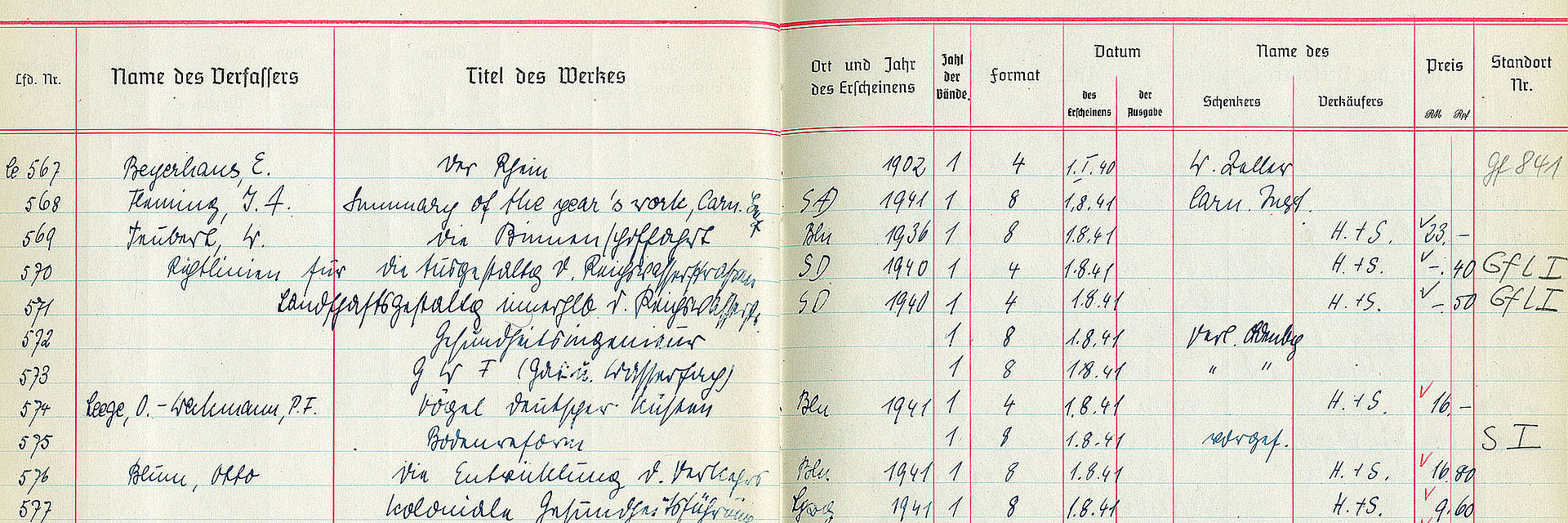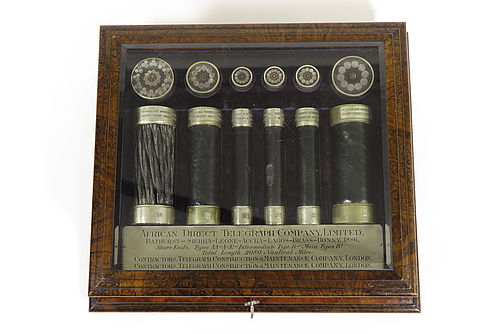Nazi-looted goods
Under National Socialism, property ranging from works of art to automobiles to typewriters was expropriated from persecuted groups. Such Nazi-looted goods can indeed be found in the Deutsches Technikmuseum's collection.

The Stiftung Deutsches Technikmuseum Berlin searches its holdings for objects that are in any way tied to Nazi looted property, GDR injustice or colonial contexts.
Our new online exhibition on the topic of provenance research in the context of GDR injustice has gone live on the portal of the German Digital Library (Deutsche Digitale Bibliothek). In the online exhibition "Shopping in the GDR. Purchases made in the GDR by the West Berlin Museum of Transport and Technology", the Deutsches Technikmuseum presents the latest research findings on the museum's purchases in the GDR in the 1980s.
Click here to go directly to the online exhibition "Shopping in the GDR".
Another online exhibition of the Deutsches Technikmuseum, "Lithographic Stones Speak. The Story of the Gerson Brothers and the Paul Pittius Print Shop" ("Drucksteine erzählen. Die Geschichte der Brüder Gerson und ihrer Steindruckerei Paul Pittius"), shows the museum's research findings on the history of the Gerson brothers and their lithographic printing company Paul Pittius. The context here is Nazi-looted property.
Click here to go directly to the online exhibition "Lithographic Stones Speak".
Provenance (from the Latin provenire = to come forth, originate) generally refers to the origin of a thing or person.
Provenance research investigates the origin and history of works of art and other objects in archives, libraries and museums. It attempts to establish the path of the objects from their production to their current location.
Particular attention is paid to properties that were unjustly taken from their former owners. The main focus is on property that was stolen from the victims of National Socialism or which had to be sold by those victims under duress. Increasingly, injustices in connection with the GDR or colonialism are also being researched.

The Deutsches Technikmuseum collects technical cultural goods of all kinds. These include not only large objects such as locomotives, airplanes and ships, but also numerous everyday objects such as radios, typewriters, bicycles and cameras.
In 2017, the museum began searching its collections for objects that had been seized from their mostly Jewish owners during the National Socialist era. The collection of historical vehicles was the first to be examined.
The foundations for further research were worked out from 2019 to 2020 as part of a pilot project funded by the German Lost Art Foundation.
Following on from that work, a further project was launched in May 2020. Its aim is to sort through all acquisitions dating from the founding of the museum in 1982 until the fall of the Berlin Wall in 1989 in order to find objects confiscated under National Socialism. This new project is expected to be completed in August 2025 and is again funded by the German Lost Art Foundation.
The Deutsches Technikmuseum has of now engaged two permanent employees for provenance research. In the coming years, the team will systematically examine the museum's collection for objects that originate from an historical context of injustice.
Shared email address: provenienz@technikmuseum.berlin